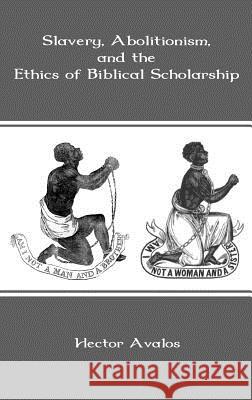Slavery, Abolitionism, and the Ethics of Biblical Scholarship » książka
Slavery, Abolitionism, and the Ethics of Biblical Scholarship
ISBN-13: 9781907534287 / Angielski / Twarda / 2011 / 346 str.
Slavery, Abolitionism, and the Ethics of Biblical Scholarship
ISBN-13: 9781907534287 / Angielski / Twarda / 2011 / 346 str.
(netto: 448,45 VAT: 5%)
Najniższa cena z 30 dni: 466,99
ok. 16-18 dni roboczych.
Darmowa dostawa!
In this immensely wide-ranging and fascinating study, Avalos critiques the common claim that the abolition of slavery was due in large part to the influence of biblical ethics. Such a claim, he argues, is characteristic of a broader phenomenon in biblical scholarship, which focuses on defending, rather than describing, the ethical norms encountered in biblical texts. The first part of Avalos's critique explores how modern scholars have praised the supposed superiority of biblical ethics at the cost of diminishing or ignoring many similar features in ancient Near Eastern cultures. These features include manumission, fixed terms of service, familial rights, and egalitarian critiques of slavery. At the same time, modern scholarship has used the standard tools of biblical exegesis in order to minimize the ethically negative implications of many biblical references to slavery.











